On International Women’s Day, we take a closer look at three women — from three different countries — who have shown extraordinary resilience. Marlita, Hina and Thao have simultaneously battled to keep their businesses afloat, while keeping their families (and their staff’s families) safe.
Three women entrepreneurs fighting for survival... and winning
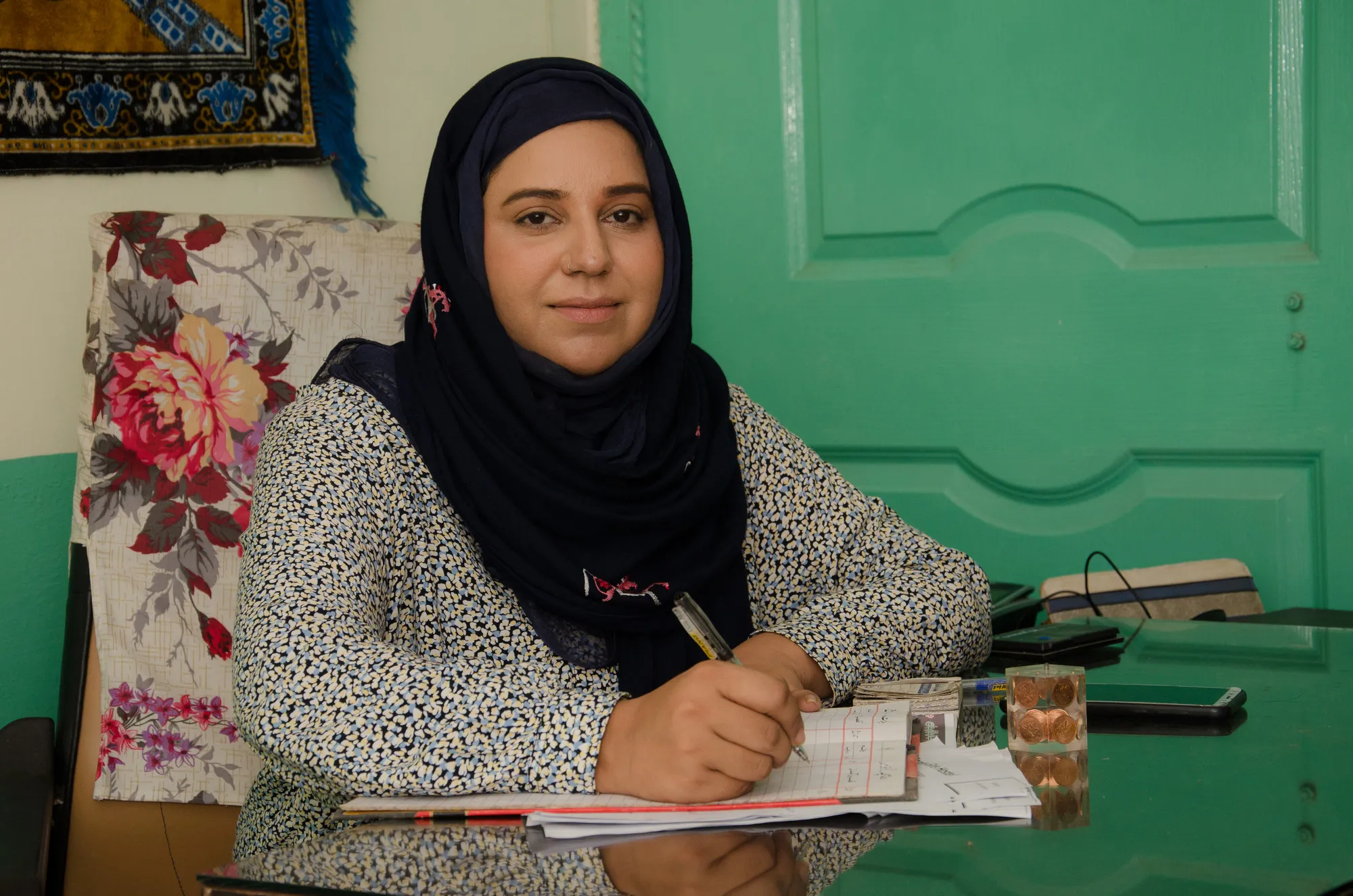
Hina Sadaf Butt, a Pakistani woman entrepreneur, tracks the finances of the student hostel she runs. (Photo: CARE Pakistan)
The global pandemic has pushed many small businesses to collapse. For women entrepreneurs, the impact has been significantly worse as childcare responsibilities increased, supply chains collapsed, a dependency on digital skills went up, and women were forced to fight for survival.
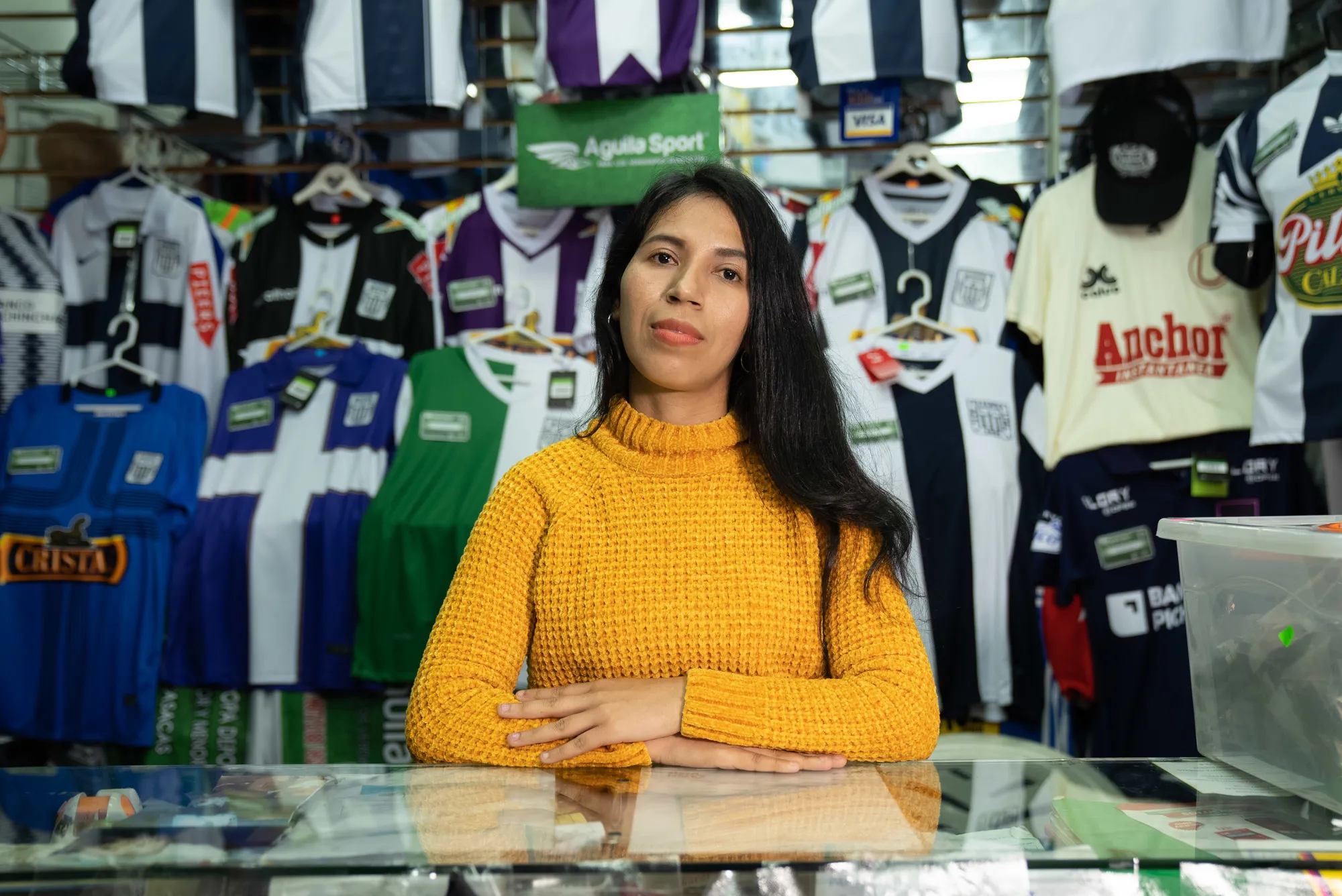
Diversifying to Survive
“It has cost me tears, it has cost me early mornings and late nights. During COVID I was close to closing and going bankrupt. If I hadn’t been brave, I might not be here now,” says Marlita Tenorio Gonzales, who runs a sportswear business in the Peruvian capital of Lima. Marlita and her husband have a son.
Three days before she was due to send a large order to Puerto Rico, borders closed. The value of this client was fifty thousand garments a year, so it was a huge blow to the business.
Marlita explains: “Many of our workers were paralyzed, because we were paralyzed, and they did not have a livelihood to support their homes. It gave me depression and I got sick. The government shut down all sporting activities. But then I had the idea of making these masks that could help me and my entire work team.”
Marlita started building a supply network for face masks through the police, fire department, and other public sector workers. She adds: “These masks saved me financially.”
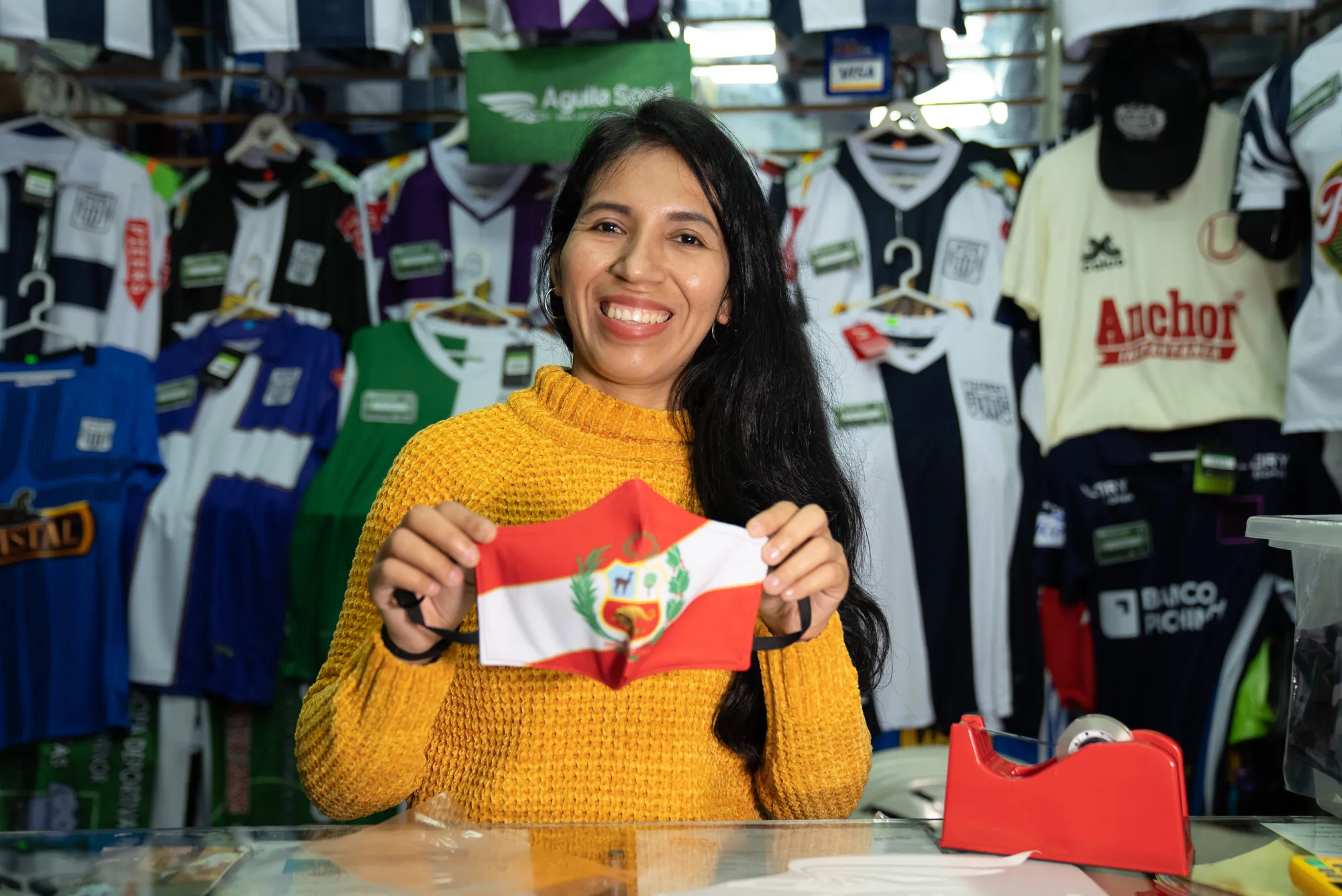
During COVID’s second wave, Marlita had to close again. Faced with bankruptcy and not willing to give up, she pivoted her business model once again and started making retro T-shirts. She recruited a network of people who had lost their jobs due to COVID and built up a supply chain.
“I was able to empower these people and offer them my products,” she says. “They are selling through virtual stores and in this way can support their family and themselves. If I hadn’t been brave, I might not be here.”
It was in the midst of the pandemic that Marlita joined CARE’s Ignite program, supported by the Mastercard Center for Inclusive Growth. During business training she learned the importance of digital tools.
“This pandemic has completely changed us from the root,” she explains. “One can no longer be in a physical point, sitting, waiting for the client to arrive. We have to use digital tools like websites, Facebook, TikTok which can help us to expand abroad.”
Far from complaining about her pandemic experiences, Marlita concludes: “These experiences have strengthened me, and helped me to value myself, my work and my products.”
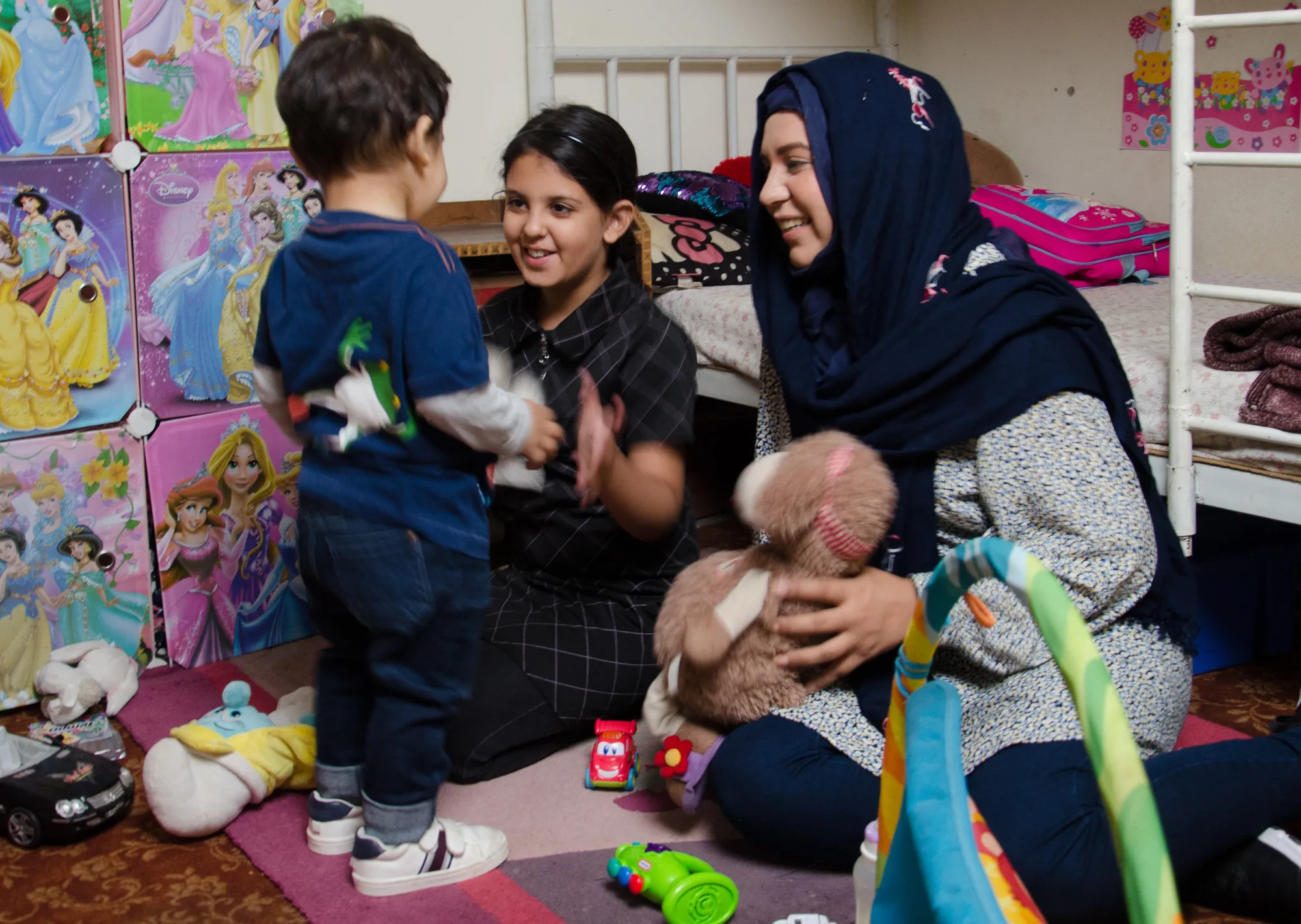
Sleepless Nights
On the other side of the world, Hina Sadaf Butt in Islamabad, Pakistan was also close to the breaking point.
“During COVID we suffered a lot,” Hina recalls. “There came a point at which we thought that we might not be able to stand our ground anymore. Yet I overcame the challenges and went on.”
She has been running a girls’ hostel for the past eight years, providing safe accommodation to female students whose parents live outside the city. She employs three people.
The most immediate impact of the pandemic on Hina was the sudden increase in childcare responsibilities.
“Being a mother, I try my best to spend quality time with my children and be an active part of my family, but it’s not easy to do,” she explains. “Running a business and a house simultaneously is very hard. I get very little time to sleep. I have faced many challenges as a woman. It is said that this is a man’s world and it’s a common thought that a woman cannot do business, but I overcame this barrier and proved myself by running a business.”
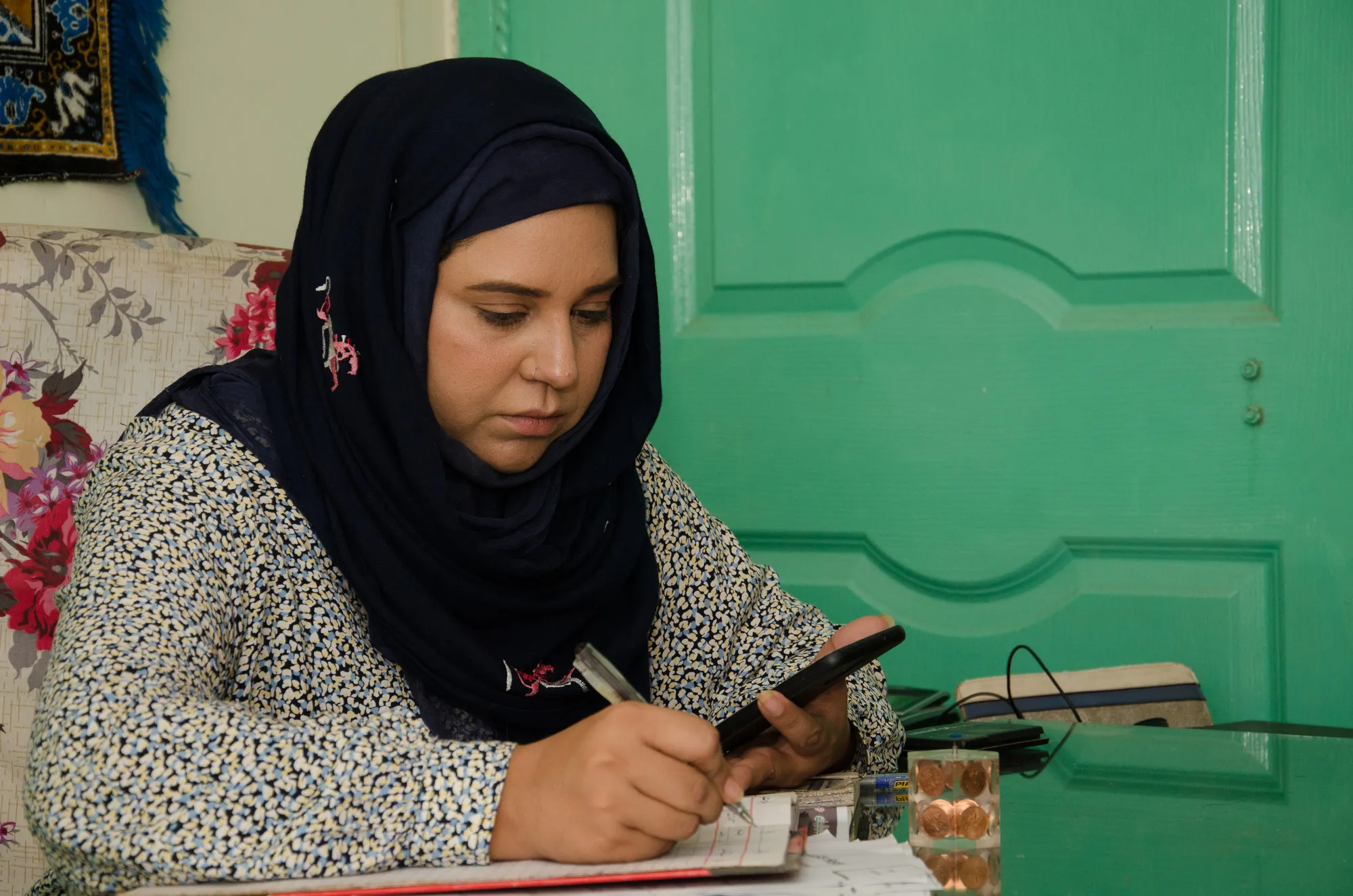
The pandemic also forced Hina to downscale her business and she moved the hostel to a smaller building as many girls were returning home to their parents. With support from the Ignite program, Hina quickly developed new digital skills meaning she could keep her remaining clients happy and her finances intact.
With many clients in far-off areas with no access to banks and unable to transfer online, Hina found a solution through online payment apps.
“This made things very convenient for our clients and we were able to receive their fees on time,” she adds. Hina also learnt about the power of social media which she has since used to recruit new clients.
Like Marlita, Hina draws on the positive outcome, adding: “I feel very blessed that I am able to fulfill my responsibility of taking care of other people’s daughters. The feedback that I get from our clients makes me very happy. People often say women can’t accomplish anything. I think if women are appreciated and encouraged, they can perhaps achieve things which men cannot.”
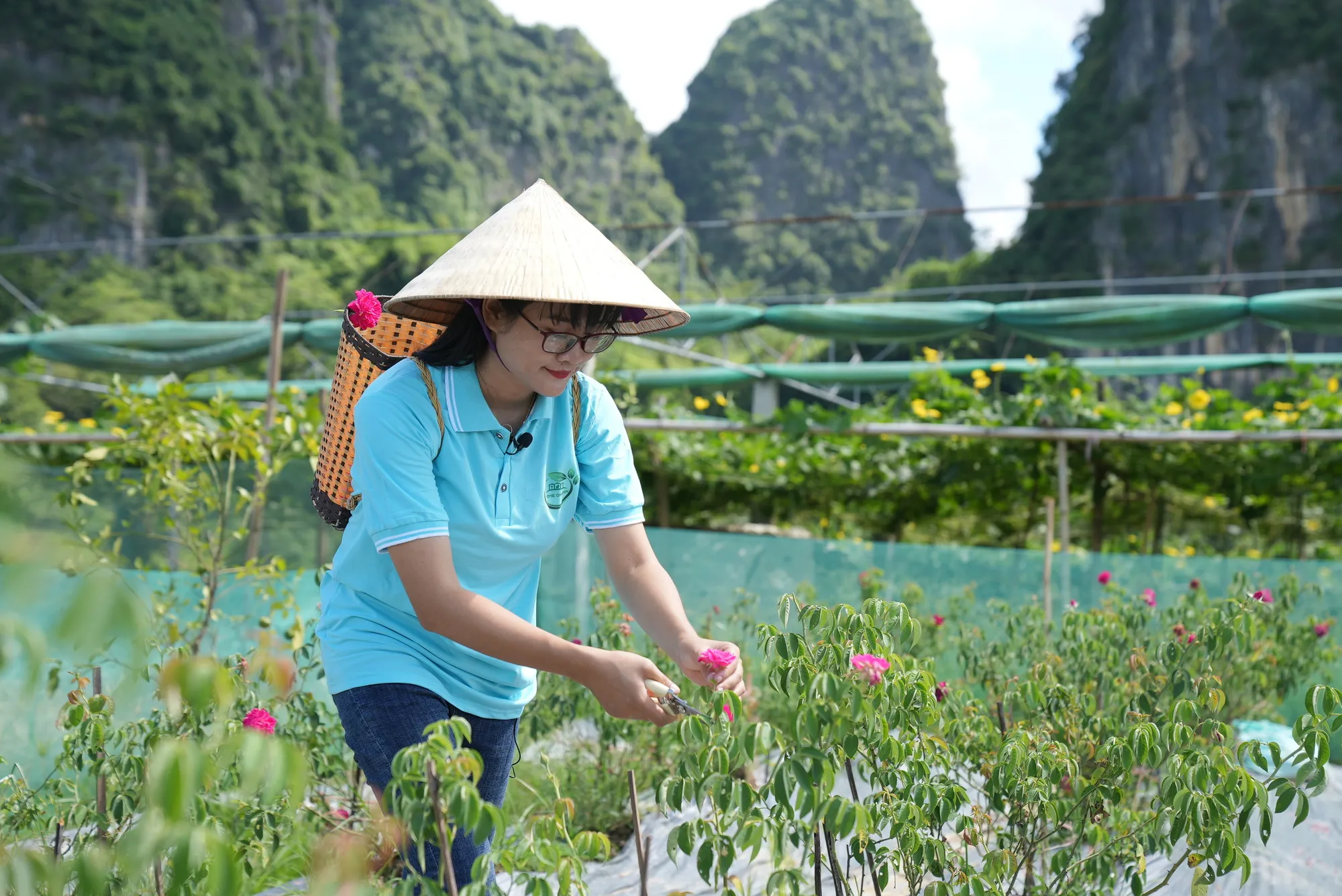
Blossoming Business
In northern Vietnam, a similar pandemic picture was unfolding for Pham Phuong Thao who set up a business selling flowers and ornamental plants three years ago and now employs six people. Like Marlita and Hina, Thao also juggles work with home life and caring for her baby.
Thao saw a sharp decline in retail customers due to pandemic lockdowns, as well as limited access to products. She explains: “We had real problems with supply chains as the majority of my products are imported from outside the province.”
Thao had to quickly switch to online sales. Through Ignite she improved her digital skills and found better ways to manage her business online. Thao has also been able to access two low-interest business loans through Ignite partner Thanh Hoa Microfinance Institution, one of which was confirmed just before the busy lunar New Year season, one of the most important celebrations in Vietnamese culture.
“These loans have supported me all the way, the interest rates were great, and my worries have disappeared,” she says.
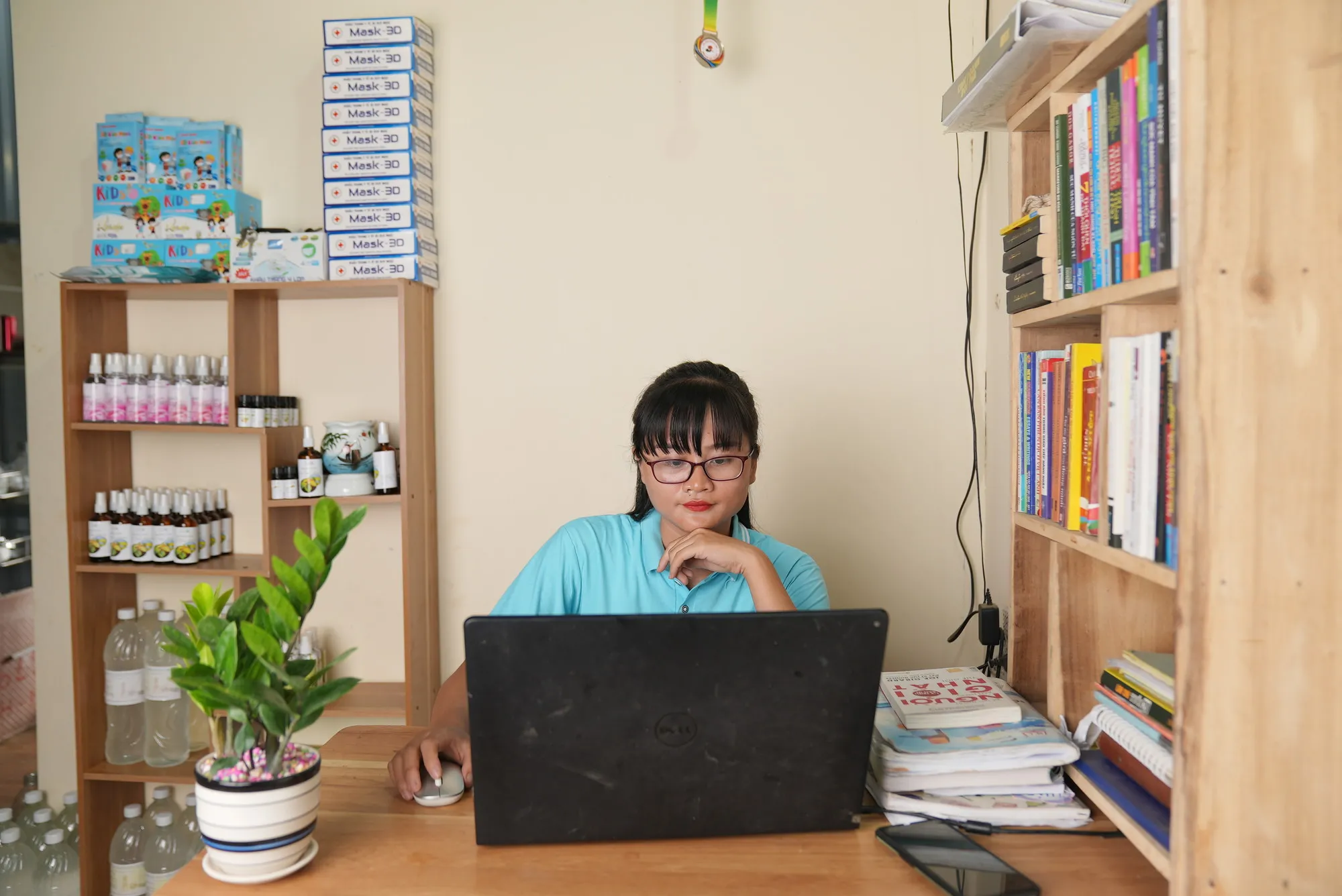
Despite the pandemic, Thao expects to significantly increase her revenue this year due to diversifying into online sales and wholesale. She is also expanding into consulting on garden landscaping and design.
Thao’s concluding message to other women thinking of setting up in business is this: “Be more confident and brave. You need to overcome barriers to give yourself the freedom to fulfill your passions.”
More: watch the Ignite film, featuring Marlita, Hina, and Thao.
